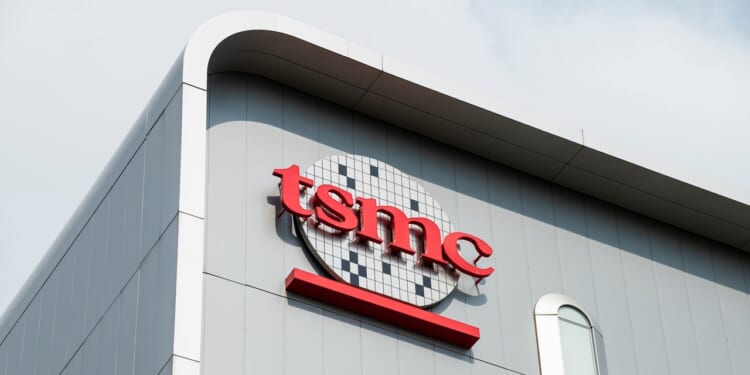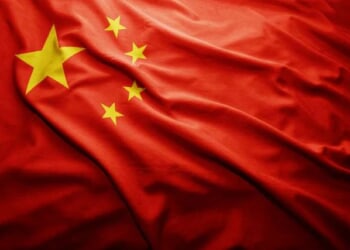TSMC insists that Chinese rare earth mineral export bans will not affect its production of advanced semiconductors, and has taken concrete steps to minimize disruption.
China has played its most dangerous hand yet in the ongoing trade war: it has threatened the world with export bans on critical rare earth minerals, using its stranglehold over global markets to undermine would-be competitors.
Not to worry, says the Taiwan Semiconductor Manufacturing Company (TSMC), the producers of the world’s most sophisticated semiconductors. TSMC insists that it has taken precautions to insulate itself from the Chinese rare earth mineral export control and that their operations will be unaffected by Chinese threats.
Even if TSMC can insulate itself from Chinese export bans on rare earth minerals, though, the fact remains that China could invade Taiwan—and knock out TSMC production lines entirely.
China Doesn’t Control All Rare Earth Minerals Everywhere
According to the government of Taiwan, the new Chinese export controls are not expected to have a major impact on the chip sector because the rare earths that China is curbing do not have to do with the rare earth minerals needed for semiconductor production. Further, Taiwan (and TSMC) source many key materials or derivatives from outside China—including from Europe, the United States, and Japan—which means dependence on Chinese exports for those specific items is reduced.
TSMC has indicated that for certain key raw materials (such as gallium and germanium) they have a buffer or alternative supply which gives them time to adjust. Plus, many of the “rare earth minerals” that get media attention are those used in magnets (for electric vehicle motors or certain defense applications). TSMC insists these are not necessarily the rare earths critical for, say, wafer fabrications at the most advanced nodes.
While the immediate impact might be limited, the restrictions could still cause indirect effects such as increased costs, supply chain rerouting, licensing delays, or less-favorable terms from suppliers. Even if TSMC’s core wafer production isn’t immediately endangered, other parts of the semiconductor ecosystem (equipment suppliers, materials suppliers, and downstream components) could be impacted, which would indirectly affect TSMC.
TSMC Still Has a Lot to Worry About
The fact of the matter is, though, TSMC is at least indirectly exposed to Chinese export controls on rare earths. The whole world is! That’s why the Chinese have worked for so long to become the dominant player in that industry. Sure, China today cannot produce the really high-end chips that TSMC can. Eventually, however, China will be able to produce those as well.
And that’s to say nothing about the prospect about how a Chinese invasion or even just a long-term blockade of China would play out. In fact, any Chinese attack on Taiwan would effectively cut the world off from access to TSMC. So, rare earth export bans by China might not be enough to keep Taiwan’s semiconductor industry down, but a Chinese invasion very easily could. That’s why it is essential that President Donald Trump’s calls to restore American manufacturing—especially its high-end chip production—be heeded much better than it has been.
Without developing supply chains in safer countries, such as America’s heartland, Taiwan risks becoming a geopolitical hot potato as the Americans and Chinese jockey for access and influence there. As these two behemoths prepare to fight for dominance over the world’s high-end chip production, let us hope that diversification of the world’s semiconductors can be enjoyed by the Americans before Taiwan is hit.
After all, without it, the Chinese will cripple Taiwan and take what they want—all without much of a fight.
About the Author: Brandon J. Weichert
Brandon J. Weichert is a senior national security editor at The National Interest. Recently, Weichert became the host of The National Security Hour on America Outloud News and iHeartRadio, where he discusses national security policy every Wednesday at 8pm Eastern. He is also a contributor at Popular Mechanics and has consulted regularly with various government institutions and private organizations on geopolitical issues. Weichert’s writings have appeared in multiple publications, including The Washington Times, National Review, The American Spectator, MSN, and the Asia Times. His books include Winning Space: How America Remains a Superpower, Biohacked: China’s Race to Control Life, and The Shadow War: Iran’s Quest for Supremacy. His newest book, A Disaster of Our Own Making: How the West Lost Ukraine is available for purchase wherever books are sold. He can be followed via Twitter @WeTheBrandon.
Image: Shutterstock / Jack Hong.

















